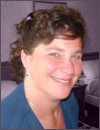Here is an interesting article that studies our accumulation of "stuff".
http://www.paulgraham.com/stuff.html
Here is my commentary...
Many of the things said in the article on "Stuff" were intriguing. As a Professional Organizer, I find that books do fall under the same category of stuff people accumulate.Books are seldom used more than once and are often left untouched. They collect dust which isn't healthy and add a lot of weight to a move. Psychologically, a sitting book can eat away at a person who had intended to read it/study it making them feel guilty and lowering their self-esteem. I have not met many people in my life who have read a non-reference book more than once. A huge percentage of books go untouched entirely. We have the dream of reading them some day. Books in some fields are outdated the moment they are published. With the advent of the Internet and the availability it brings to information, we no longer need to keep as much stuff as reference. The Internet brings up-to-date information to our finger tips the moment we need it without adding clutter to our home. Think recipes, for example, for decades people have been collecting recipe books. Recipe books are often bought on impulse, sometimes go out of style, and many old ones are no longer considered healthy. The Internet can be overwhelming, but it provides a wealth of recipes. Imagine the space available if one's recipe collection was thinned down to family recipes and selected favorites from the books.While books are treasured by some and a status symbol for others, for many they are equally "stuff" adding to clutter in the home.
For those struggling to part with books, focus more on the future than on the existing collection. Once we have spent money, it is hard to "waste it". So, instead, remind yourself next time you want to buy a book, to think about whether you really need it and what will your need be for it down the line. Consider treating books stores like libraries, one does not need to walk out with a book.
Here is a strategy that you can use...
1) Changing your buying habit in the future will help keep the collection from growing.
2) Begin to weed out the items from the collection that you are not attached to, will never read, or have no use for. Start with a quick glance at the shelf, anything you see that you can quickly pull out, do so. Skip anything that causes you to ponder.
3) For the tougher books, give yourself some time to think about whether you really need them. Ask for help, discuss your thoughts with someone else and see what they think.
4) When you are ready, consider the idea that you could be helping someone else by providing the resources they need which are no longer needed by you. Donate the books to Friends of the Library, Craigslist, or FreeCycle.

No comments:
Post a Comment